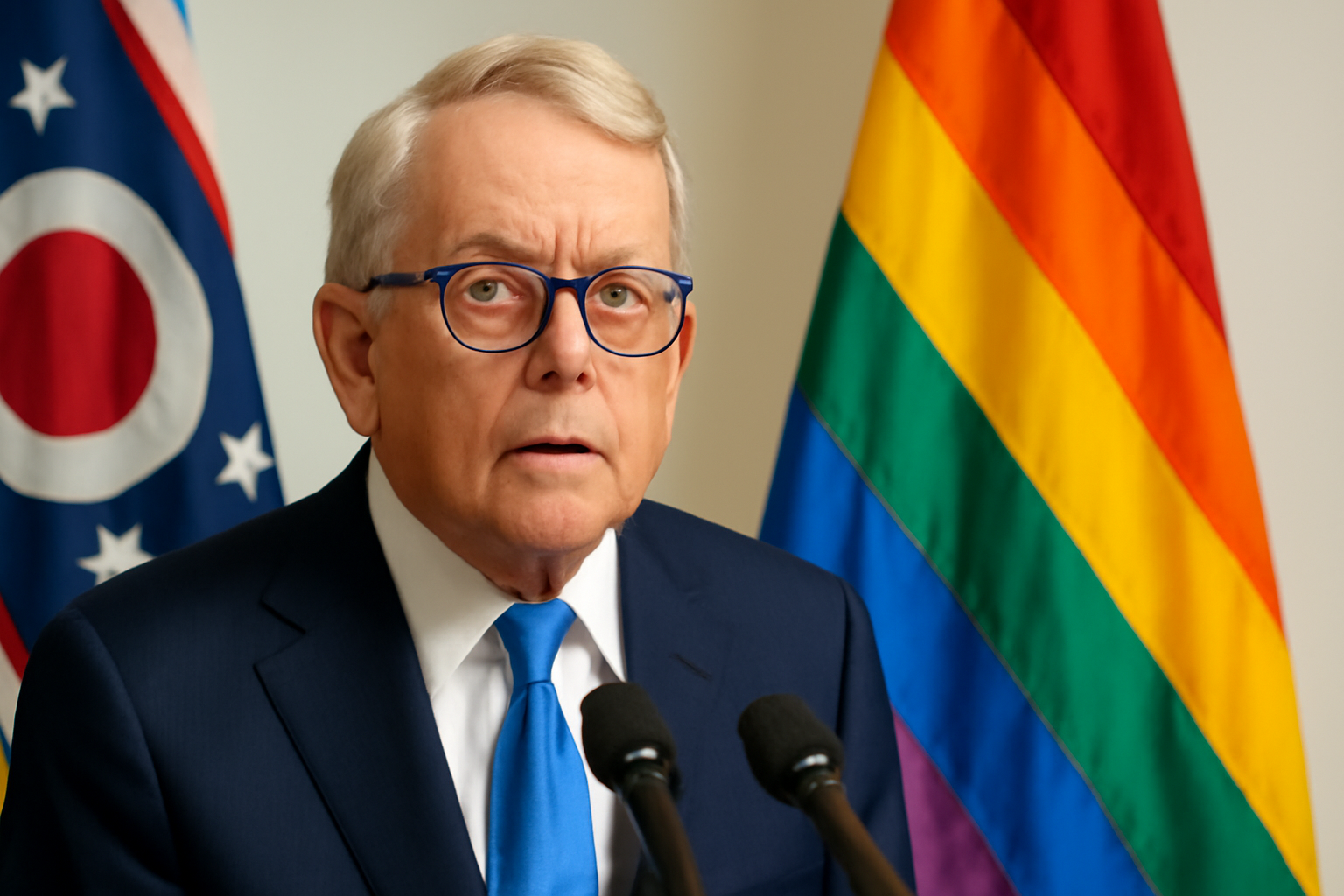
In a move that has drawn criticism from LGBTQ+ advocates and civil rights organizations nationwide, Ohio has enacted a new law that restricts discussions about sexual orientation and gender identity in schools. Signed by Governor Mike DeWine, the legislation has been met with significant backlash from educators, parents, and community leaders who argue that it is a step backward in creating inclusive and supportive environments for all students.
Background of the Legislation
The newly signed law, which many have dubbed "Ohio's version of the 'Don't Say Gay' bill," aims to limit how teachers can address topics related to sexual orientation and gender identity in the classroom. Proponents of the bill argue that it is designed to give parents more control over their children's education and to ensure that discussions on these topics are age-appropriate. However, opponents see it as a harmful attempt to erase LGBTQ+ identities from educational spaces.
Under the provisions of the law, educators are restricted from discussing LGBTQ+ topics with students in grades K-3, and any discussions in higher grades must align with state-mandated guidelines that critics say are vague and open to interpretation. This has raised concerns about the potential chilling effect on teachers, who may avoid these discussions altogether for fear of repercussions.
Reactions from the Community
Many in the LGBTQ+ community and their allies have expressed outrage over the passage of the law. Advocacy groups argue that such legislation marginalizes LGBTQ+ youth and contributes to a culture of silence and stigma. "This law sends a damaging message to LGBTQ+ students that their identities are something to be ashamed of or hidden," said one spokesperson from a national LGBTQ+ rights organization.
In response to these concerns, numerous protests and rallies have been organized across the state, with demonstrators urging lawmakers to repeal the legislation. "We should be creating schools that are safe and affirming for every student, regardless of their sexual orientation or gender identity," one protestor stated at a recent demonstration in Columbus.
Impact on Students and Educators
Teachers and school administrators are now grappling with how to implement the new law while maintaining an inclusive atmosphere in their classrooms. Many educators worry that the restrictions could limit their ability to address bullying and discrimination against LGBTQ+ students. "Our goal is to support all of our students and help them thrive," said a local high school teacher. "This law makes it difficult for us to do that."
Research has shown that LGBTQ+ students often face higher rates of bullying and mental health challenges compared to their peers. Supportive educational environments are crucial in mitigating these risks and promoting student well-being. Critics of the Ohio legislation fear that it will exacerbate existing issues and lead to negative outcomes for LGBTQ+ youth.
Looking Ahead
The passage of this law in Ohio is part of a broader national trend, with similar legislation being introduced or passed in other states. This has sparked a national conversation about the rights of LGBTQ+ individuals and the role of education in fostering understanding and acceptance.
Civil rights organizations are preparing to challenge the law in court, arguing that it violates students' constitutional rights to free speech and equal protection. In the meantime, community groups are mobilizing to support LGBTQ+ youth and ensure that their voices are heard in the ongoing debate.
As the legal and social battles continue, it remains to be seen how the legislation will impact Ohio's educational landscape in the long term. What is clear, however, is that the controversy surrounding the "Don't Say Gay" bill has ignited a passionate response from advocates who are determined to fight for the rights and dignity of all students.
For now, the conversation continues, with many hoping that dialogue and understanding will prevail over division and exclusion.
Related Posts
"Wicked": Unveiling Fiyero's Destiny - Hidden Clues You May Have Overlooked
Have you ever been swept away by a story that leaves you unraveling clues long after it ends? That's exactly what "Wicked" does with its enchanting narrative, unforgettable songs, and complex characters. Among them, Fiyero stands out as a charming prince whose surprising metamorphosis by curtain fall makes us wonder: were there hints about his fate scattered throughout? Let's dig deep and see if " [...]
Triumphant Trans Woman Wins Legal Battle and Inspires Others to Stand Up for Their Rights
Breaking new ground: a landmark victory in transgender rights After battling in courtrooms and enduring endless challenges, Diana Portillo, a transgender woman, has secured a monumental victory in her decade-long fight against workplace discrimination. The result? Nearly $1 million awarded in a historic settlement. But this isn't just a win on paper—it represents a powerful precedent in combati [...]
Pride Month in Latin America: Protests and Demands for Equality
**Celebrating Pride and advocating LGBTQ+ rights in Latin America** Pride Month in Latin America was a lively mix where celebration met activism. Communities united, not just throwing a party but making a stand—demanding equality and pushing governments toward better protection and rights recognition. Throughout Latin America, pride events erupted in marches and cultural displays, each with a c [...]